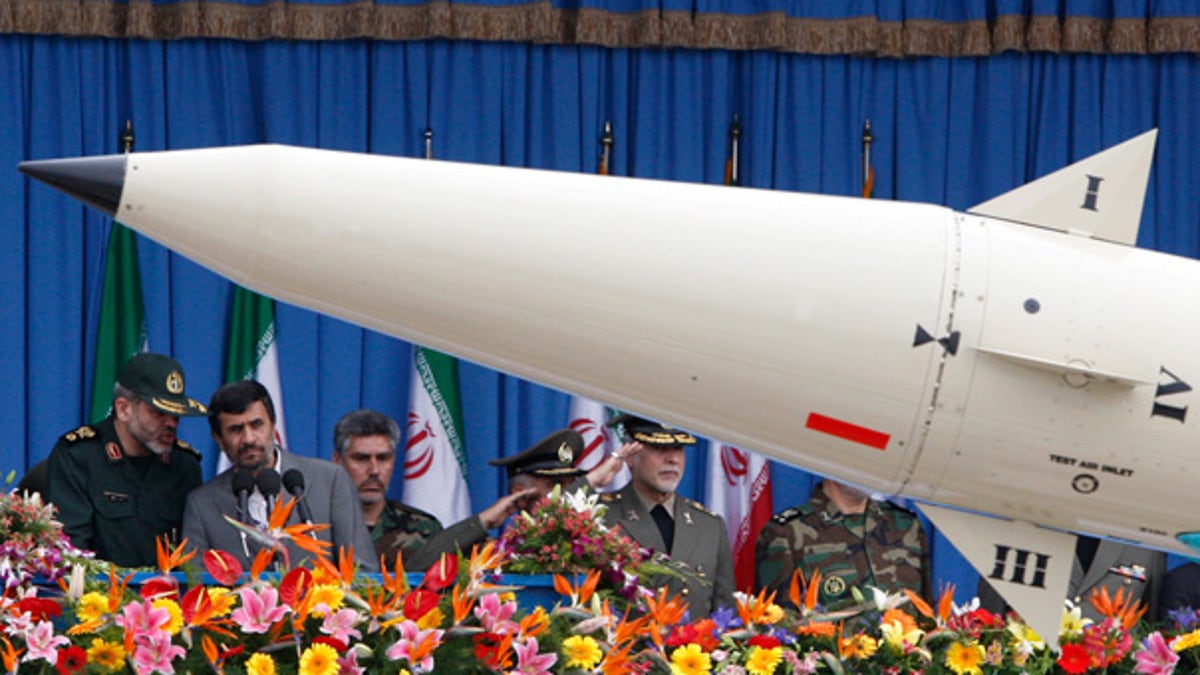
April 18: Iranian President Mahmoud Ahmadinejad, second left, listens to his Defense Minister, Gen. Ahmad Vahidi, as a rocket is paraded during National Army Day. (AP)
"With sufficient foreign assistance, Iran could probably develop and test an intercontinental ballistic missile (ICBM) capable of reaching the United States by 2015," says a new 12 page unclassified report prepared by the Department of Defense on the Iran Military Threat.
The report says Iran's military strategy is designed to defend against external or "hard" threats from the United States and Israel. "Iran's nuclear program and its willingness to keep open the possibility to develop nuclear weapons is a central part of its deterrent strategy," according to the report.
Iran continues being a disruptive force inside Iraq, it alleges.
"Iran continues to provide money, weapons and training to select Iraqi Shia militants despite pledges by senior Iranian officials to stop such support," the report says. "Iran also offers strategic and operational guidance to militias and terrorist groups to target U.S. Forces in Iraq and undermine U.S. interests."
It also outlines what Defense Secretary Robert Gates has called Tehran playing a "double game" inside Afghanistan.
The regime makes big promises to the Afghan government trying to appear to be a good neighbor, and is also sending weapons into the country, and backing a wide range of groups so "it will have a positive relationship with the eventual leaders."
Regarding the effectiveness of Iranian Conventional Forces, "Iran maintains very sizeable military forces, but they would be relatively ineffective against a direct assault by well trained, sophisticated military such as that of the United States or its allies."
It does judge Iran's unconventional forces, which include paramilitary forces, "would present a formidable force on Iranian territory."
The report outlines Iran's nuclear weapons capabilities and developments saying it is "keeping open the option to develop nuclear weapons," which is consistent with what we've heard from a wide range of U.S. officials. It says the Iranians have gone to great lengths to protect its nuclear infrastructure from physical destruction including using buried and hardened facilities.
The final aspects of the report review the regime's efforts to improve ballistic and cruise missile capabilities.
The secretary of defense is required as part of the National Defense Authorization Act to submit a classified and unclassified report on the current and future military strategy of Iran.




